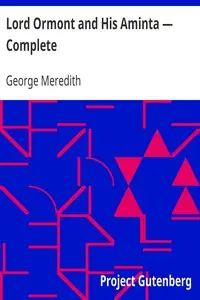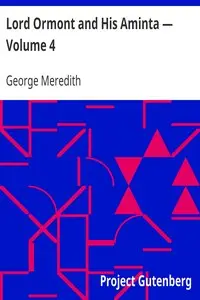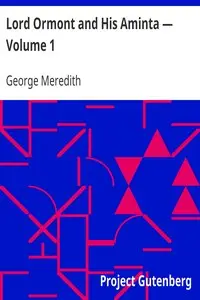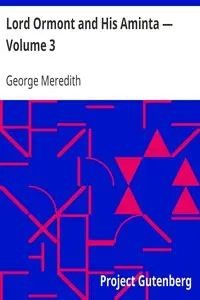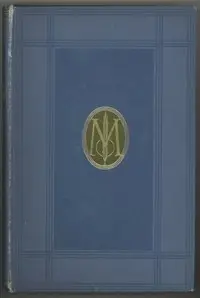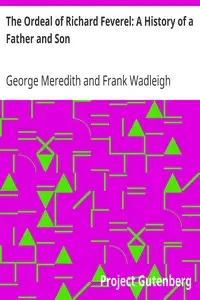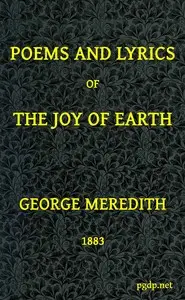"Lord Ormont and His Aminta — Volume 5" by George Meredith is a 19th-century novel that examines love, identity, and societal pressures through the compelling story of Lord Ormont and Aminta. It begins by introducing the central conflict within their marriage, showcasing Lord Ormont as a strong, authoritative figure reflecting on his connection with Aminta. Aminta emerges as a resilient yet sensitive character, struggling to reconcile her role as a countess with her personal aspirations for independence and recognition. Their complex relationship brims with underlying tension as Aminta deals with feelings of dissatisfaction and longs for autonomy, all overshadowed by her husband's steadfast and controlling nature. Their interactions, marked by both tenderness and discord, lay the foundation for a deeper examination of their bond throughout the story.
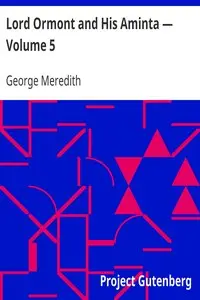
Lord Ormont and His Aminta — Volume 5
By George Meredith
A powerful military figure and his countess wife grapple with societal expectations and personal desires, creating a turbulent marriage fraught with longing and conflict.
Summary
About the AuthorGeorge Meredith was an English novelist and poet of the Victorian era. At first, his focus was poetry, influenced by John Keats among others, but Meredith gradually established a reputation as a novelist. The Ordeal of Richard Feverel (1859) briefly scandalised Victorian literary circles. Of his later novels, the most enduring is The Egoist (1879), though in his lifetime his greatest success was Diana of the Crossways (1885). His novels were innovative in their attention to characters' psychology, and also portrayed social change. His style, in both poetry and prose, was noted for its syntactic complexity; Oscar Wilde likened it to "chaos illumined by brilliant flashes of lightning". Meredith was an encourager of other novelists, as well as an influence on them; among those to benefit were Robert Louis Stevenson and George Gissing. Meredith was nominated for the Nobel Prize in Literature seven times.
George Meredith was an English novelist and poet of the Victorian era. At first, his focus was poetry, influenced by John Keats among others, but Meredith gradually established a reputation as a novelist. The Ordeal of Richard Feverel (1859) briefly scandalised Victorian literary circles. Of his later novels, the most enduring is The Egoist (1879), though in his lifetime his greatest success was Diana of the Crossways (1885). His novels were innovative in their attention to characters' psychology, and also portrayed social change. His style, in both poetry and prose, was noted for its syntactic complexity; Oscar Wilde likened it to "chaos illumined by brilliant flashes of lightning". Meredith was an encourager of other novelists, as well as an influence on them; among those to benefit were Robert Louis Stevenson and George Gissing. Meredith was nominated for the Nobel Prize in Literature seven times.

